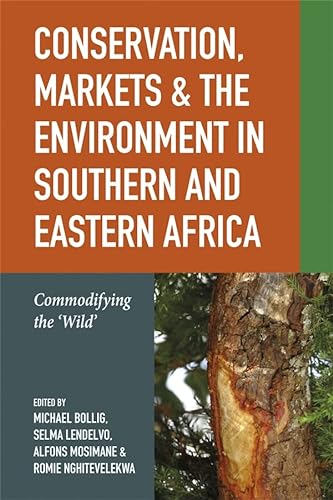

Most ebook files are in PDF format, so you can easily read them using various software such as Foxit Reader or directly on the Google Chrome browser.
Some ebook files are released by publishers in other formats such as .awz, .mobi, .epub, .fb2, etc. You may need to install specific software to read these formats on mobile/PC, such as Calibre.
Please read the tutorial at this link: https://ebookbell.com/faq
We offer FREE conversion to the popular formats you request; however, this may take some time. Therefore, right after payment, please email us, and we will try to provide the service as quickly as possible.
For some exceptional file formats or broken links (if any), please refrain from opening any disputes. Instead, email us first, and we will try to assist within a maximum of 6 hours.
EbookBell Team

0.0
0 reviewsFocuses on a much discussed and controversial aspect of conservation: the commodification of nature. Can the successful marketization of what is generally perceived as wilderness help to provide for biodiversity conservation, economic development and social emancipation?
At a time of profound anxiety about the impact of human activity on nature and the catastrophic effects of climate change, the "sixth mass extinction", invasive species and rapidly expanding zoonotic diseases, this volume engages with the practices, discourses, and materialities surrounding the commodification of "the wild". Focusing on the relationship between commodification and wilderness, the contributors pay particular attention to commodification's newer iterations in which human management plays a significant role, such as wildlife-park tourism, trophy-hunting, and trade in herbal medicines, perfumes and luxury exotic food items.
Dominant neoliberal approaches have aimed to address global environmental challenges through the commodification and marketization of nature: by valorizing nature, they claim, biodiversity can be safeguarded and "wild" landscapes protected. This, it is thought, will not only open up a new frontier of sustainable, non-exploitative, participatory capitalist expansion, but invigorate rural livelihoods, reduce poverty, and add important assets to otherwise vulnerable rural economies. This important book challenges this future trajectory. Investigating a broad range of cases across southern and eastern Africa, from the illegal sandalwood trade to legal trade in devil's claw and honeybush, to trophy-hunting and wilderness safaris, the contributors reveal the pitfalls and challenges of commodification, what this means for the continent and beyond.
OPEN ACCESS: This title is freely available in digital format under the Creative Commons license CC BY-NC-ND